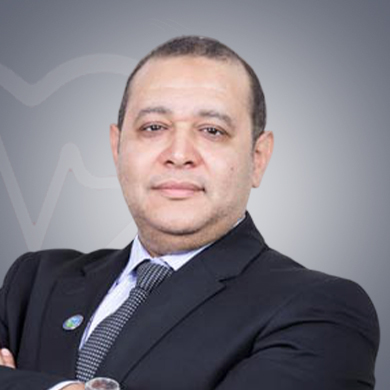
18 Years of experience
Speaks: English
Some of the conditions treated by opthalmologist Dr Mohamed Ramadan Mahmoud include:
An ophthalmologist treats diabetic retinopathy based on several factors, such as the severity of the condition and response to previous treatments. Some effective treatment methods include laser treatment, injections, and eye surgery. The doctor might prescribe some antibiotics for bacterial conjunctivitis. Antibiotics might help lessen the length of infection.
Eye conditions can produce different symptoms and these can differ from person to person. Some of the signs and symptoms of different types of eye conditions include:
It is important to go for routine eye examinations to diagnose the condition. If you have not undergone an eye examination for more than one year, you must consult your eye doctor. It is important to remain aware of the warning signs which can help you make the right decision for your eyesight.
Dr Mohamed Ramadan Mahmoud is available for consultation between 10 am and 5 pm. The average working hours of the doctor are 47 hours a week.
Some of the popular procedures performed by Dr Mohamed Ramadan Mahmoud are listed below:
LASIK (Laser in Situ Keratomileusis) uses a laser to reshape the cornea. This procedure uses a certain laser designed to treat vision issues, improve vision, and also reduce the need for glasses and contact lenses. The laser alters the shape of your cornea.

Share Your Experience about Dr. Mohamed Ramadan Mahmoud

Ophthalmologists are doctors who handle the medical aspects of eye care, such as treatment, surgery, and prescription of glasses and contact lenses as well as medicines for different eye problems. Some ophthalmologists work with other eye care team, coordinate with optometrists as well as other medical professionals to provide care for chronic eye conditions. An ophthalmologist also diagnoses as well as treats eye conditions, does eye surgeries, and participates in scientific research on the causes and treatment for eye diseases and vision issues. Sometimes, ophthalmologists also detect health issues that are not related to the eyes but become clear in a routine eye exam. The ophthalmologist recommends that the person should consult their doctor.
The tests required before and during the consultation by an opthalmologist include:
An eye exam involves a number of tests to check your vision and eye diseases. The eye doctor will use various instruments and focus bright lights at the eyes and ask you to look through an array of different lenses. Each test in an eye exam will evaluate a different aspect of vision and eye health..
Below are some situations when you need to see an opthalmologist:
The above-listed signs and symptoms signal that you need to consult an eye specialist who will diagnose the condition and start suitable treatment. They may tell you to undergo a number of eye tests to diagnose the condition. They also talk to other specialists about your condition and will start the best treatment.